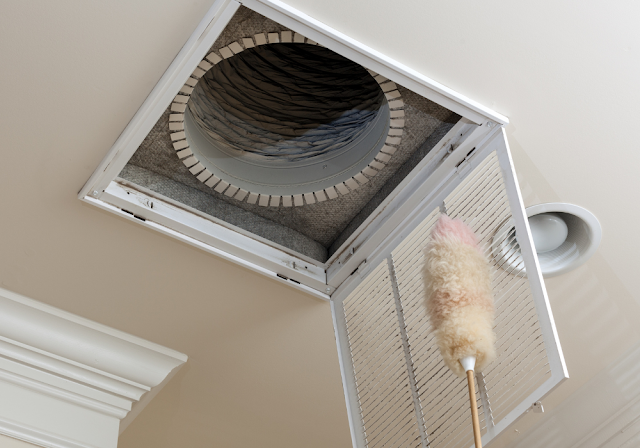AC Efficiency 101: Spotting the Signs of an Energy-Saving Cooling System
An air conditioning (AC) system's efficiency is crucial for energy savings and comfort. A well-maintained and energy-efficient AC system reduces your electricity bills and helps decrease your carbon footprint. Here are some key indicators to consider when assessing the efficiency of your cooling system:
 |
| Image Source: https.staticflickr.com |
1. Age of the System
AC systems become less efficient as they age. If your system is over 10-15 years old, consider replacing it with an updated, more energy-efficient model. Modern models are designed to meet higher efficiency standards.
2. Energy Bills
Keep a close watch on your energy bills. A steady increase in cooling costs could indicate that your AC system is no longer operating efficiently. Regular maintenance can help address this issue and improve energy efficiency.
3. Inconsistent Cooling
If some rooms in your home are cooler or warmer than others, your AC system might need to distribute cool air evenly. This issue could be attributed to problems with the ductwork or an improperly sized system.
4. Frequent Repairs
Frequent breakdowns and the need for constant repairs can be signs that your AC system is nearing the end of its lifespan. The cumulative cost of repairs may make investing in a new, efficient system more cost-effective in the long run.
5. Thermostat Issues
A malfunctioning thermostat can cause your AC system to run longer than necessary, resulting in energy wastage. Ensure that your thermostat is calibrated and functioning correctly.
6. Airflow Problems
Restricted or inadequate airflow can force your AC system to work harder to cool your home. Dirty filters, blocked vents, or ductwork problems can reduce efficiency.
7. Unusual Noises
Rattling, banging, or grinding may signify mechanical problems within the AC unit. These issues reduce efficiency and can lead to further harm if addressed.
8. Lack of Regular Maintenance
Regular maintenance, including cleaning coils, replacing filters, and checking refrigerant levels, is essential to keep your AC system operating efficiently. Neglecting maintenance can lead to decreased performance.
9. High Humidity Levels
An efficient AC system not only cools the air but also removes humidity. If your home feels excessively humid even when the AC is running, your system may need to be dehumidifying properly.
10. Energy-Efficient Features
Consider upgrading to an AC system with energy-efficient features such as programmable thermostats, variable-speed fans, and SEER (Seasonal Energy Efficiency Ratio) ratings that meet or exceed local standards.
11. Proper Sizing
Ensure that your home's AC system is correctly sized. An oversized system can start short cycling and reduce efficiency, while an undersized system will need help to cool your home effectively.
12. Sealing and Insulation
Inspect your home's insulation and ensure no gaps or leaks. Proper insulation and sealing can help maintain a comfortable indoor temperature and reduce the workload on your AC system.
13. Consider Solar Options
If you're seeking long-term energy savings, consider solar-powered AC systems or solar panels to offset the energy consumption of your cooling system.
Regular maintenance conducted by a professional HVAC technician is crucial to keep your AC system running efficiently. They can identify and inspect issues before they become major problems. By paying attention to these signs and investing in energy-saving practices and technologies, you can enjoy a comfortable home while decreasing energy consumption and costs.


Comments
Post a Comment